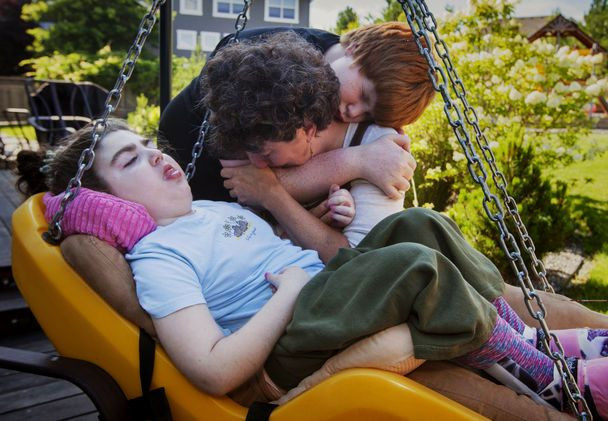Family Wins $15.2M After Medical Miscommunication Leaves MacKenzie Briant With Devastating Brain Damage

The family of an 8-year-old girl who cannot swallow, speak, or walk has been awarded $15.2 million after a miscommunication between doctors and the effects of an over-the-counter nasal decongestant left her permanently brain-damaged.
The award, which will be paid by the University of Washington, underscores the critical importance of communication in the medical world — and that lack of confirmation can lead to devastating consequences.
MacKenzie Briant was born in 2004 with a heart defect, and had undergone a heart transplant not long after her birth. Because she was still taking drugs that compromised her immune system, her mother, Elaine Briant, was constantly on the vigil for any sign of illness.
In November 2008, MacKenzie caught a cold, and her life would change forever.
Elaine, who lives with her two children and husband in Snoqualmie, Wash., called Seattle Children's Hospital to ask for advice after MacKenzie suffered a runny nose for several days. The cardiology fellow who answered her call, Dr. Cory Noel, made sure to call MacKenzie's transplant cardiologist, Dr. Yuk Law, to discuss possible drugs to recommend.
Dr. Law reportedly told Dr. Noel over the phone that MacKenzie shouldn't use Afrin nasal spray because it could elevate her blood pressure, which could be troublesome with her heart transplant. Either Noel didn't hear Law or he forgot, because the cardiology fellow gave MacKenzie's mother a list of drugs — including Afrin — that she could use to treat her daughter's cold.
Elaine Briant drove to pick up some Afrin from the store, sprayed it into her daughter's nose, and shortly thereafter heard MacKenzie make a strange noise and stop breathing. After being rushed to the hospital and revived, doctors later confirmed that she had significant brain damage that would alter her family's life forever. The Briants now had to consider around-the-clock care and also cognitive therapy for MacKenzie, all of which would have a financial, if not already emotional, impact on the family.
The judge ruled that UW Medicine was responsible for the miscommunication and recommendation of Afrin.
"The specialist at Children's said it was unrelated to Afrin, our experts concluded it was unrelated to Afrin, the judge disagreed," UW Medicine attorney Clarke Johnson said.
"It could have been avoided if there had been a repeat-back policy," Ralph Brindley, the Briants' attorney, said. "That's what they should do in the medical community, and I think they do in most instances." In the aviation industry, the repeat-back policy is important in improving patient safety.
Though the news of the $15.2 million award provides some relief to the family, it remains bittersweet as MacKenzie is far from her old self. The family has invested in stem-cell treatment, and hope that in the future, her daughter's neuron pathways can be rebuilt.
"I'm not going to give up hope that she can be better," Elaine told The Seattle Times. "I want her to feel joy. I want her to know I love her."
Published by Medicaldaily.com



























